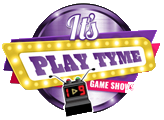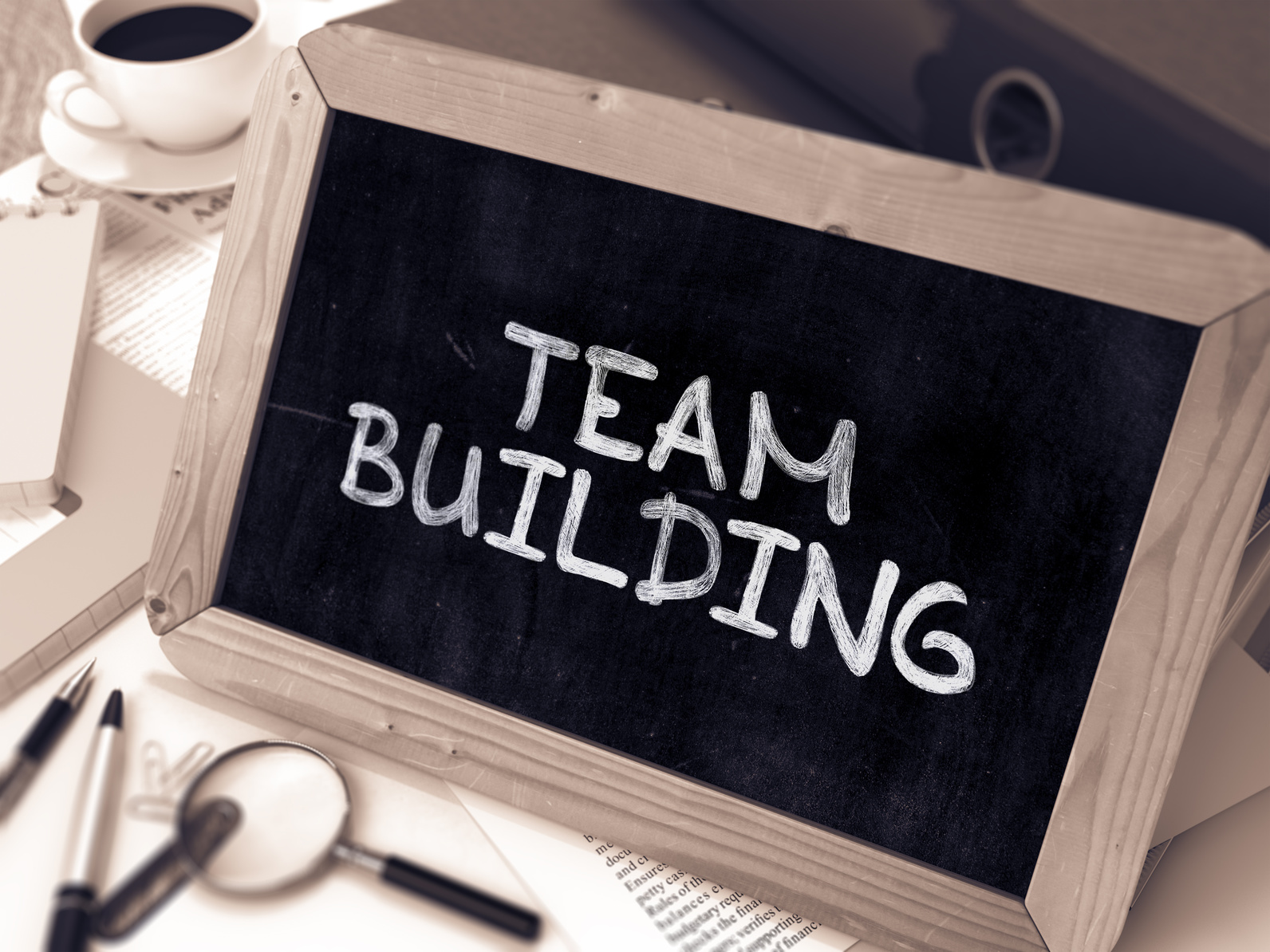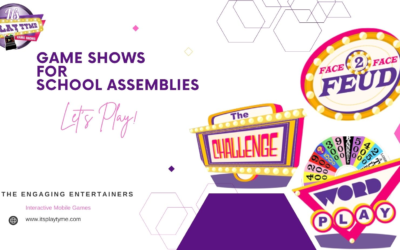In this article, we have outlined 6 quick team builders for any organization looking to improve productivity, foster a positive work culture, and boost overall performance. Teams that communicate well and work collaboratively are often the most successful. Finding ways to build those skills can be quite challenging. .
Fortunately, you can incorporate a few quick and easy team builders to provide a fun and engaging way to develop teamwork, communication skills, problem-solving abilities, creativity, and more.
In this article, we will explore the benefits of a few quick and easy team building activities to enhance your team’s performance. Whether you’re working with an established team or trying to bring together a new group of colleagues from different departments or locations, there are plenty of activities that can help you achieve your goals.
We will discuss some icebreaker games to outdoor challenges and virtual activities. We’ll show you how simple exercises can have a big impact on your team’s success.
Why Team Builders are Important?
Team building activities are important in promoting employee engagement and enhancing organizational success. These exercises are a great way to build trust, mitigate conflict, and develop problem-solving and leadership skills among employees.
A few quick team building activities can involve anything from a simple team bonding game to more complex challenges that require verbal instructions. By organizing some quick team building events or regular activities, organizations can promote a culture of teamwork and collaboration while simultaneously improving communication skills among staff members.
Why Team Building Matters.
Effective team building activities can enhance group cohesion, communication, and problem-solving skills leading to improved overall performance. These fast paced games are designed to engage members in a variety of fun and challenging exercises that promote collaboration, effective listening, and mutual trust. These activities help break down barriers and build camaraderie within the team.
Moreover, these activities are particularly helpful in mitigating conflict by creating opportunities for team members to get to know each other better. This allows them to develop an understanding of each other’s strengths and weaknesses which is crucial for problem solving.
By working together on various tasks or challenges as a cohesive unit, teams can build their confidence while also improving communication skills and fostering a sense of teamwork that ultimately leads to better outcomes. Investing time in effective team building activities ensures that your team is prepared to tackle any challenge that comes their way with ease and confidence.
The Benefits of Quick and Easy Team Building.
Engaging in team building activities, that won’t take up too much time, can have significant positive effects on group dynamics and contribute to the overall success of a team. By taking part in quick and easy team building exercises, organizations can reap numerous benefits such as:
- Improved communication: Team building activities encourage open channels of communication among members. They learn how to express their ideas more clearly and listen actively to others.
- Increased collaboration: Working together towards a common goal helps build trust between team members, leading to better collaboration and problem-solving skills.
- Boosted morale: Fun team-building exercises help boost employee morale by providing them with an opportunity for social interaction outside work.
Not only do these benefits lead to a more cohesive and productive team, but they also promote job satisfaction, which ultimately contributes to employee retention. Furthermore, quick and easy team builders are cost-effective compared to other training methods while still achieving similar results.
Ultimately, investing time in team building activities is an investment in the success of an organization as it leads to better performance outcomes. Here are the 6 quick team builders to boost your team’s performance today.
1. Brainstorming Exercise – Spark Innovation and Creativity
Creativity is a vital component in any team’s success. It helps teams come up with innovative solutions to complex problems and supports the development of unique products or services. In this section, we will explore quick and easy team builders that can boost your team’s creativity and innovation.
One effective way to spark creativity within your team is by using brainstorming activities. Brainstorming is a group technique that encourages individuals to generate as many ideas as possible in a short amount of time.
To get started, create a table with two columns: one for the problem or challenge you want the team to solve, and another for the ideas generated during the brainstorming session. Here’s an example:
| Problem/Challenge | Ideas Generated |
| How can we reduce our company’s carbon footprint? | Switch to renewable energy sources, incentivize employees who bike or walk to work, implement composting bins in the office, offer telecommuting options |
By using this table format during brainstorming sessions, you can capture all ideas generated by individuals in real-time while keeping everyone engaged and focused on finding creative solutions.
2. Quick Icebreaker Activities: Start Your Team Building Off Right
Icebreaker activities serve as an effective starting point for team building by facilitating introductions and establishing a relaxed, comfortable atmosphere that encourages communication and collaboration. These activities are designed to break down barriers between team members who may not be familiar with each other or have different personality types.
Some activities can range from simple games like
- Picture Interpretation: Show a picture to the group and ask participants to interpret what they see in the image. This activity can lead to interesting and unexpected conversations and can help participants see things from different perspectives.
- Personal Artifact Sharing: Ask each participant to bring in a personal artifact that represents something important to them, such as a souvenir from a meaningful trip or a memento from a special event. Participants can share the story behind their artifact, and the group can discuss what it means to them.
- Desert Island: Ask participants to imagine they are stranded on a desert island and can only bring three things with them. Participants can share their choices and explain why they would choose those particular items. This activity can reveal interesting insights into participants’ priorities and values.
- Word Association: Ask each participant to say a word that comes to their mind related to the topic or theme of the meeting, and then have the next person build on that word with their own. This activity can help break the ice and get participants thinking creatively.
The benefits of icebreakers go beyond just getting to know your colleagues better. These activities help build trust among team members, improve communication skills, promote creativity and problem-solving abilities, and increase overall job satisfaction.
By participating in fun activities together, employees will feel more connected to their work environment and their colleagues. As a result, they are likely to experience increased motivation levels that translate into improved job performance.
3. Fast Communication Games
Communication exercises encourage team members to express themselves clearly, listen attentively, and respond appropriately to others’ ideas. These activities also help individuals understand their teammates’ personalities, and preferences for exchanging information.
Improving communication skills is a vital aspect of team building, and adding communication exercises can enhance these skills by promoting effective and efficient collaboration among colleagues. By practicing different methods of communication in a safe and supportive environment, teams can improve their ability to resolve conflicts, share information effectively, and work together more cohesively.
To get started with enhancing your team’s communication skills through exercises, here are four suggestions:
- Two truths and a lie: This game encourages individuals to share personal information about themselves while also challenging their teammates to identify the falsehood.
- Blind drawing: In this exercise, one person describes an image while another draws it without seeing it. This activity helps develop clear verbal instruction skills.
- Telephone game: This classic game involves whispering a message from one person to the next down a line of people until it reaches the end and is compared with the original message.
- Mock crisis scenario: This simulation creates a hypothetical problem that requires teamwork and effective communication to solve quickly and efficiently.
4. Trust and Unity Exercises
Developing trust among team members is crucial for achieving unity and collaboration in the workplace, and incorporating trust-building activities can strengthen this bond by promoting open communication, empathy, and mutual respect.
Trust building activities allow team members to work together more cohesively by creating an environment where they feel comfortable sharing ideas and supporting one another.
One effective trust-building activity is the ‘Trust Walk.’ In this exercise, one member of the team is blindfolded while another guides them through a course. The guide must communicate effectively with the blindfolded members to ensure their safety. This exercise promotes active listening skills as well as empathizing with others’ needs.
Another popular activity is ‘Two Truths and a Lie,’ where each team member shares three statements about themselves – two truths and one lie. The rest of the group has to guess which statement is false. This exercise helps build trust by allowing team members to share personal information in a non-threatening way while also encouraging active listening skills. Incorporating these types of exercises into your team building efforts can lead to a more cohesive, productive workplace culture built on mutual trust and respect.
5. Fun Problem Solving / Critical Thinking Games
The present section focuses on problem-solving games that promote the development of critical thinking skills among team members. These activities help individuals to become better problem solvers, improve their communication skills, and develop a sense of teamwork. By participating in these games, teams can learn how to work together effectively and achieve common goals.
Below are some examples of problem-solving games that can be used to develop critical thinking skills within your team:
- Escape Rooms: Participants must work together to solve puzzles and escape a locked room before time runs out.
- Scavenger Hunts: Teams must use their problem-solving skills to decipher clues and complete challenges to find specific items or locations.
- Tower Building Challenges: Teams are tasked with building the tallest tower possible using only limited resources, such as cardboard or popsicle sticks. Make sure you set a time limit that is quick to make the challenge fast and furious.
- Brain Teaser Game Shows: Puzzles that require creative thinking and logic can help individuals improve their critical thinking abilities. You may consider the use of technology for this quick exercise.
By incorporating these types of activities into your team-building efforts, you can help your team members become more confident in their ability to solve complex problems. These games also provide an opportunity for individuals to collaborate with one another in a fun and engaging way, improving overall teamwork within your organization.
6. Virtual Team Building: Connect Your Remote Team with Fun Online Games
Virtual team building is becoming increasingly popular, due to the pandemic and as remote work becomes more common in today’s business world. With teams working from different locations, it can be challenging to keep everyone engaged and connected. However, virtual team building activities offer a solution that enables teams to bond in fun and engaging ways while improving their performance.
Virtual team building activities range from online games to video conferencing sessions. These activities are designed to create opportunities for remote workers to interact with one another, share experiences, and build trust which contribute positively towards the overall success of the organization.
By participating in these online events, team members get a chance to connect with one another on a personal level despite being physically apart. This emotional connection helps boost morale and productivity while also enhancing employee satisfaction levels.
Frequently Asked Questions
How long does it take to see the benefits of team building activities?
The benefits of team building activities can vary depending on various factors, including the type of activity, the size and dynamics of the team, and the organization’s culture. However, research suggests that team building can have both immediate and long-term benefits for teams.
Immediate benefits may include increased communication, improved trust and collaboration among team members, enhanced creativity and problem-solving skills, and a boost in morale. Long-term benefits may include increased productivity, higher job satisfaction rates among team members, lower employee turnover rates, and improved overall performance.
While some benefits may be visible immediately following a team-building activity, others may take longer to materialize as they require ongoing effort from all involved parties.
What are some common mistakes to avoid when planning team building activities?
When planning team building activities, it is important to avoid common mistakes that may hinder the success of the activity. One of the common mistakes is failing to consider the preferences and interests of team members in selecting an activity.
It is also essential to ensure that the activity aligns with the goals and objectives of the team. Another mistake is not providing clear communication about expectations, instructions, and guidelines for participation. This can lead to confusion among team members and reduce their engagement in the activity.
Additionally, it is crucial to allocate enough time for planning and execution of the activity, as rushing through it may compromise its effectiveness. Ultimately, avoiding these mistakes can help maximize the benefits of team building activities on team performance.
How do you determine which team building activities will work best for your team?
When determining which team building activities will work best for your team, it is important to consider several factors. Firstly, you should assess the needs of your team and identify areas that require improvement. This could be communication, collaboration, problem-solving or leadership skills.
Secondly, you should take into account the preferences and interests of your team members as this will help to ensure their active participation and engagement in the activity. Thirdly, you should consider the size of your team and any logistical constraints such as time availability or budget limitations.
By taking these factors into consideration when choosing a team building activity, you can increase the chances of achieving positive outcomes that will enhance your team’s overall performance.
Can team building activities be effective for teams that are already high performing?
Team building activities have been commonly used to improve the performance of teams. However, it is often questioned whether these activities are effective for teams that are already high performing. While there is limited research on this topic, some studies suggest that team building can still be beneficial for high-performing teams in terms of enhancing communication and collaboration among team members, improving trust and morale, and fostering a positive team culture.
These benefits can not only strengthen the existing bonds among team members but also help the team to maintain its high level of performance over time. Therefore, even if a team is already performing well, investing in appropriate team-building activities can still enhance its overall effectiveness and success.
How can you measure the success of a team building activity?
Measuring the success of a team building activity can be challenging, as it involves evaluating intangible outcomes such as improved communication, increased trust among team members, and higher morale. However, there are several metrics that organizations can use to assess the effectiveness of their team building efforts. These include employee engagement surveys, performance reviews, and feedback from team members themselves.
Another important factor to consider is whether the activity aligns with the team’s overall goals and objectives. Ultimately, the success of a team building activity should be measured in terms of its impact on the team’s performance.
Final Key Takeaways
Team building is a crucial aspect of any organization. It helps to improve communication, enhance problem-solving skills, and increase productivity. A few quick and easy team-building activities can be an effective way to boost performance without taking up too much time or resources.
Icebreaker games are a great way to get your team comfortable with each other. Communication exercises help improve understanding between team members while problem-solving games develop critical thinking skills.
Creativity boosters can help unleash the potential in your team by sparking new ideas and encouraging innovation. Virtual team building allows remote and hybrid teams to connect through fun online activities such as trivia quizzes, scavenger hunts or virtual escape rooms.
These 6 quick activities offer numerous benefits that can positively impact overall organizational performance. Bonding amongst co-workers doesn’t have to be a long drawn-out affair. These activities can be simple and short but still increase collaboration, foster creativity, enhance communication skills, promote problem-solving abilities, and more.
With a plethora of options available, there’s no reason why you can’t start boosting your team’s performance immediately.
Need Help with Planning a Team Builder Activity?
Let us help. We got you covered. If you need a step-by-step guide to help plan an icebreaker game for your next team builder or event, contact us immediately. We have a plethora of fun exercises and challenges to choose from that don’t require a deposit upon booking,
Don’t Delay. Let’s Play!









